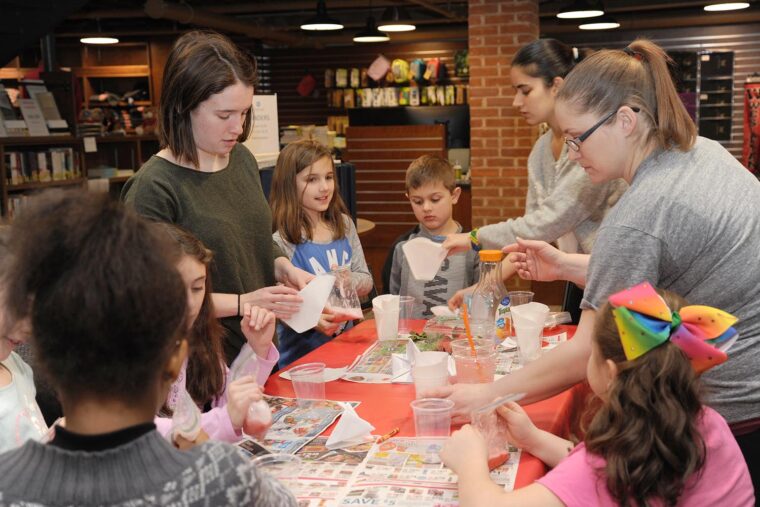Students Seek Ways to Engage with the Middletown Community
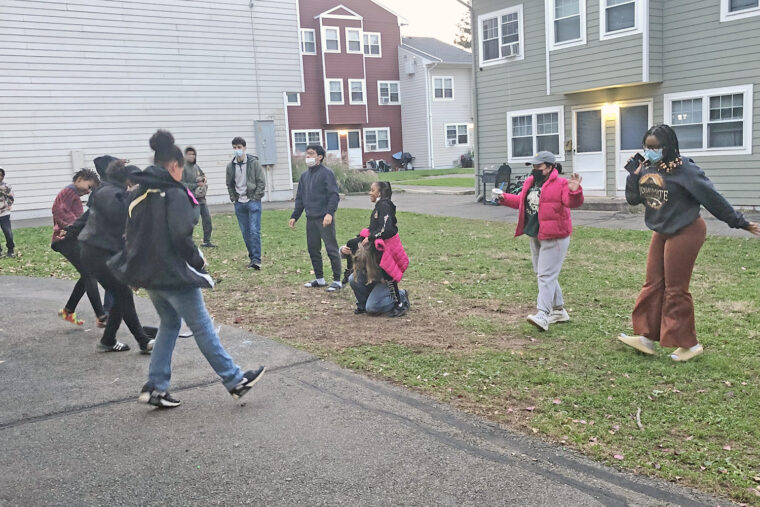
A couple of days before Thanksgiving, Diana Martinez and a few of her colleagues from the Jewett Center for Community Partnerships (JCCP) were up early at Usdan to fill their cars with 200 pies, destined for the Middletown Community Thanksgiving Project.
The project, housed at Fellowship Baptist Church on Saybrook Road, distributes the trappings of a traditional Thanksgiving dinner to people across the community. “There is value in the communal aspects of coming together for a common cause. I think that is the feeling we are trying to imbue into all of our students,” Martinez said.
While Martinez, the assistant director at the JCCP, is excited about this sort of thing, single day projects are an anomaly for the department. The JCCP prefers to focus on creating enduring relationships between Wesleyan and the Middletown community.
Through various community partners, Wesleyan students run tutoring programs for children, provide food for people who are housing insecure, and participate in local government. They collect kids’ books. Students advocate for refugee rights. They help with the development of Middletown’s economically challenged North End. For around 400 students, participation in these programs – learning to understand and appreciate their wider community – becomes an intrinsic part of their Wesleyan education.
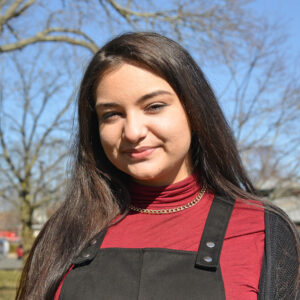
Emily McEvoy ’22 believes that civic engagement is a moral imperative because of the resource gap between the town and the university. “If I was going to be a student here, there was an obligation I was wrestling with to make this gap smaller, and cultivate other young leaders to share Wesleyan’s bounty of resources where it is needed most and not currently felt,” said McEvoy, who was named a 2021 Campus Compact Newman Civic Fellow (read story).
McEvoy has immersed herself in the city, ripping down the perceived bubble that separates Wesleyan from Middletown. For the past three years, McEvoy has served as coordinator of WesNEAT, a group of student volunteers who have staffed the office of the North End Action Team (NEAT) and broadly work in support of community organizing in Middletown’s North End. She said it is often easy for bright students to overlook the work that has been previously done in the community. She said it is often easy for bright students to overlook the work that has been previously done. “I have learned that our idealism needs to be practical, strategic, and target the center of power where it really matters,” McEvoy said.
Middletown is small enough where students like McEvoy can work on project that have real stakes – the students’ work can move from a theoretical plane to the scrum of daily life. “If we are educating students on how to be good global citizens, that requires connection and communication with folks outside of their immediate social circles,” Martinez said.
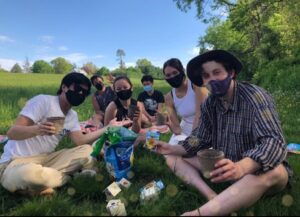
Martinez, a Wesleyan graduate, has personal experience of how important it can be to push beyond the familiar. She grew up in New York City and her transition to Wesleyan was, in some ways, a challenge. She found her place amongst the citizens of Middletown. Her interactions inspired her to set down roots in the community and to work with her alma mater to make the city a better place.
“The experience we create for students is manufactured. We hire faculty and staff. We create opportunities and experiences and that is a really important learning experience. I think community engagement work contextualizes that we are in a real town with real people, dealing with real world issues. I am finding more and more that students are interested in dealing with that reality,” Martinez said.
Sophie Williamson ’22 is one of four students who coordinate the afterschool program at Traverse Square, a government subsidized housing unit in Middletown. About 30 Wesleyan students volunteer at the program, which takes place every day for several hours after school.
“We provide one-on-one tutoring and enrichment programs. We play with the kids and give them a safe space to hang out,” Williamson said.
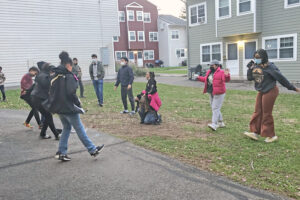
Williamson had done community service in high school and was looking for an extracurricular activity at Wesleyan that would help structure her time. When other extracurriculars dropped away, Traverse Square remained. Some days were a challenge, but the joys of working with the kids far exceeded the difficulty.
“It is a bit more immersive than some of the other ones. We don’t have a community partner in the same way. We have no teachers or adult staff members. We’re an entirely student run organization,” she said. “It is working with a community that really needs support.”
Her experience working with the children at Traverse Square has changed her entire trajectory. If you asked Williamson what she wanted to be when she first arrived at Wesleyan, she would’ve said law school was in her future. Now, she is thinking seriously about working in education or with children in some way. “This role has been really fulfilling and has made me grow a lot,” Williamson said.
One afternoon, Williamson walked a two-year-old to the Traverse Square program. She reveled in how delighted the little girl was to go to see her Wesleyan friends. “She was so excited because she was going to school. This is where she comes to learn – there was something about watching that little girl run to us, as fast as a two-year-old can run … we are contributing something to her life. What we are doing is so much larger than ourselves,” Williamson said.
It is precisely this kind of interaction that Martinez sees repeatedly with students. They work with the Middletown community and their empathy grows. “They are centering other folks. They are asking ‘who is this for?’ and ‘how does this (project) help this community?’ That is the goal of our office – to get students to ask these questions over and over again,” Martinez said.
